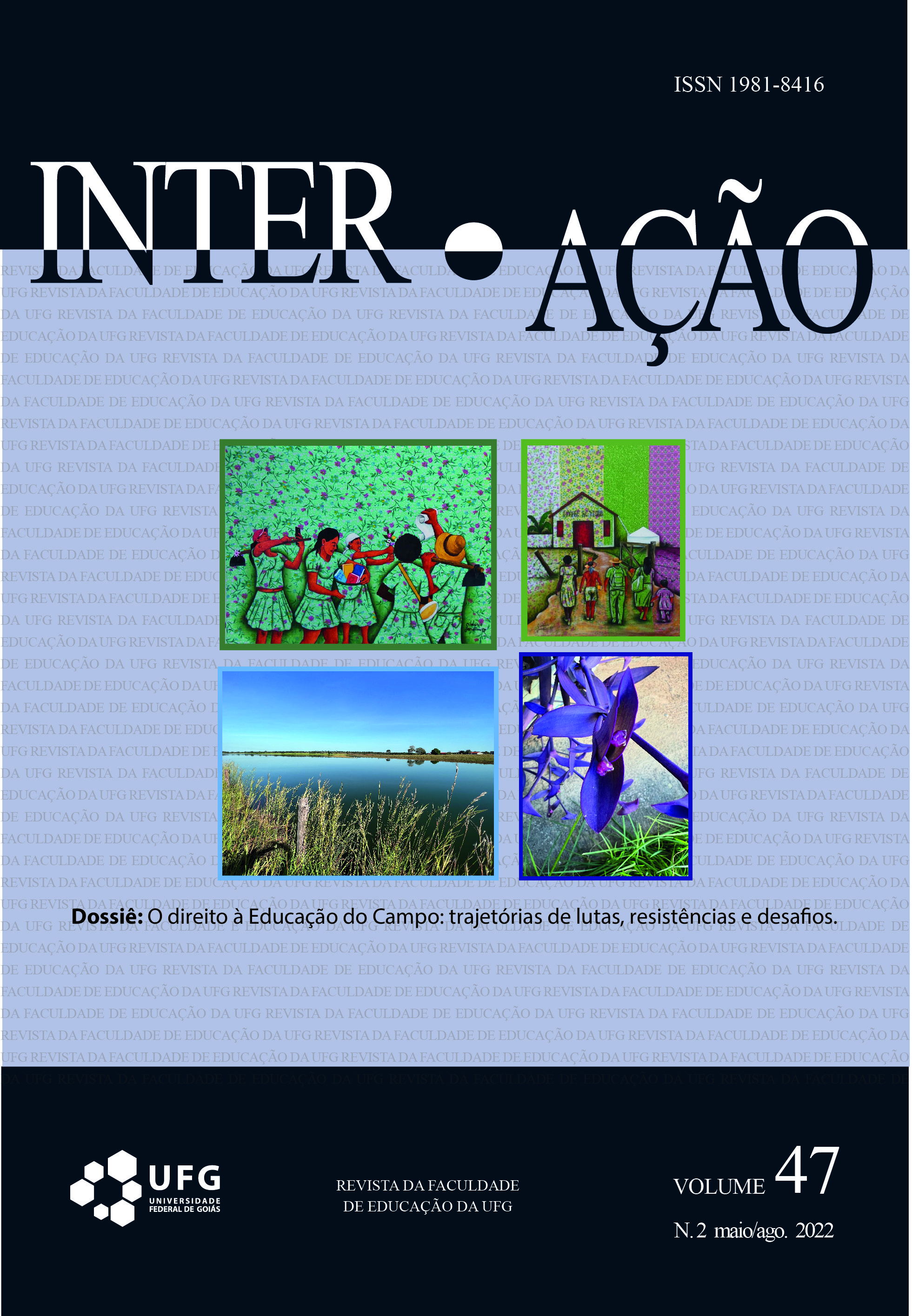FORMACIÓN CONTINUA DE MAESTROS DEL CAMPO: UNA REFLEXIÓN SOBRE LAS CONTRADICCIONES DE LA BASE NACIONAL COMÚN CURRICULAR (BNCC)
DOI:
https://doi.org/10.5216/ia.v47i2.71721Resumen
La formación continua de los docentes rurales se considera fundamental para la construcción de la identidad del ser docente y para la construcción de una propuesta educativa orientada al desarrollo campesino. Este espacio formativo, que se desarrolla tanto en el servicio, en el espacio escolar, como fuera de él, en universidades, institutos y movimientos sociales, es considerado como un territorio de disputa y poder. En un esfuerzo por comprender, discutimos la educación permanente y su relación entre teoría y práctica en las resoluciones y prescripciones de la Base Nacional Común Curricular (BNCC) a la luz de la categoría de análisis “contradicción”, del método del materialismo dialéctico. Para ello, se utilizó uma revisión bibliográfica, análisis de documentos y datos recolectados a través de cuestionarios com secretarios de educaión y docentes de campo em los municipios encuestados. Los resultados apuntan a formaciones enfocadas em la epistemologia de la práctica pedagógica, condicionadas a problemas que se presentan em el cotidiano del aula, inetrcmbio de saberes, relatos de experiências exitosas y compartir angustias; formación enfocada en conocimientos esenciales: português y matemáticas (lectura, escritura y cálculo) com preparación para evaluaciones externas y) falta de formación continia específica para la Educación Rural. Finalmente, em cuanto a la centralidade em la epistemologia de la prática marcada por la educación rural, apuntamos a la práxis com la valoración del saber construído por la humanidade y la unnidad de teoria y práctica.
PALABRAS CLAVE: Educación del Campo. Formación Continua. Práctica y Praxis.
Descargas
Publicado
Cómo citar
Número
Sección
Licencia
Derechos de autor 2022 Cláudia Batista da Silva, Arlete Ramos dos Santos

Esta obra está bajo una licencia internacional Creative Commons Atribución-NoComercial 4.0.
A Inter-Ação utiliza como base para transferência de direitos a licença Creative Commons Attribution 4.0 para periódicos de acesso aberto (Open Archives Iniciative - OAI). Por acesso aberto entende-se a disponibilização gratuita na Internet, para que os usuários possam ler, baixar, copiar, distribuir, imprimir, pesquisar ou referenciar o texto integral dos documentos, processá-los para indexação, utilizá-los como dados de entrada de programas para softwares, ou usá-los para qualquer outro propósito legal, sem barreira financeira, legal ou técnica.
Autores que publicam neste periódico concordam com os seguintes termos:
1) Autores mantém os direitos autorais e concedem à revista o direito de primeira publicação, com o trabalho simultaneamente licenciado sob a Licença Creative Commons Attribution que permite o compartilhamento do trabalho com reconhecimento da autoria e publicação inicial nesta revista.
2) Autores têm autorização para assumir contratos adicionais separadamente, para distribuição não-exclusiva da versão do trabalho publicada nesta revista (ex.: publicar em repositório institucional ou como capítulo de livro), com reconhecimento de autoria e publicação inicial nesta revista.
3) Autores têm permissão e são estimulados a publicar e distribuir seu trabalho online (ex.: em repositórios institucionais ou na sua página pessoal) a qualquer ponto antes ou durante o processo editorial, já que isso pode gerar alterações produtivas, bem como aumentar o impacto e a citação do trabalho publicado.















